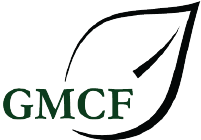-State faculty present research at NOAA workshop

Reported in K-State Today 7/17/2018
https://www.k-state.edu/today/announcement.php?id=42811
Drought, dams and denial were among the topics presented June 18-20 in Boulder, Colorado, by three Kansas State University faculty at a workshop sponsored by the National Oceanic and Atmospheric Administration and University of Colorado's Center for the American West.
James Sherow, university distinguished professor of history; Matthew Sanderson, Randall C. Hill distinguished professor of sociology; and Bonnie Lynn-Sherow, associate professor and director of the Chapman Center for Rural Studies, were asked by NOAA chief scientist Roger Pulwarty to share their research related to community members' responses to drought in the American West.
Thirty distinguished scholars from Kansas, Colorado, Utah, California, Nevada and New Mexico were invited to engage with one another in a deep discussion designed "to refresh our thinking, and break the power of conventional thinking in solving the difficult problems that drought creates."
Drought has become a persistent feature of life in the West, and the lessons of historians, social scientists and legal scholars who study human-environment relationships past and present are important for scientists and policymakers to grasp. As historian and Center for the American West director Patty Limerick noted, "In the United States and in many other areas of the planet, efforts to resolve conflicts or address problems (such as drought) seem destined to fail in the absence of an understanding of the origins of those conflicts and problems."
Sanderson told the group his aim is developing more sustainable, socially and ecologically resilient communities. He has been working on several projects in western Kansas that examine co-evolving relations between humans and ecosystems, focusing on the dynamic intersections of water, agriculture and local social structures in the context of long-term, global social change. His work reveals the conflicting values and realities of how western farmers and ranchers think about and therefore treat water resources, especially the Ogallala Aquifer.
Sherow, expanding on Sanderson's insights, made connections between drought and the way our western market culture reduces water to a commodity.
"Drought is a human construction, rather than a natural phenomenon, masking a failure to adjust cultural values to the ecological realities of the region," Sherow said. "Today in western Kansas, rising concerns over drought and the depletion of the Ogallala Aquifer have led to further calls to dominate nature as opposed to residents questioning how their values relate to the ecological and water realities of the region."
In the past, farmers and ranchers have attempted to adjust to new ecological realities by adopting new water saving and water storing technologies such as dams, center pivot irrigation and drought-resistant crops. Lynn-Sherow noted in her presentation that dams were promoted by the federal government as water storage solutions, but as the lifespans of many of these dams reach their endpoint, many rural residents are questioning their usefulness. For condemned communities in the path of massive dam projects in the 1950s and 60s, resistance to the dams seemed futile. This was true for Broughton, Kansas — Milford Dam — and Waconda Springs — Glen Elder Dam. But at Cedar Point, in Chase County, local resistance, led by rancher Pat Sauble, prevailed and a planned dam project that would have destroyed one of the most scenic and ecologically fragile portions of the Flint Hills was not constructed. How the residents of this small valley were able to deflect the Army Corps of Engineers is a story worth recalling today.
Pulwarty, chief scientist for drought at NOAA, has been leading workshops nationally to review and discuss the origins of several of our most persistent or wicked environmental problems, including mining, energy, air quality, water and climate change. Insights collected by NOAA at scholar workshops are frequently incorporated into policy recommendations for Congressional committees and federal agencies. A summary and transcripts of the drought workshop will be posted to the NOAA website in August.












